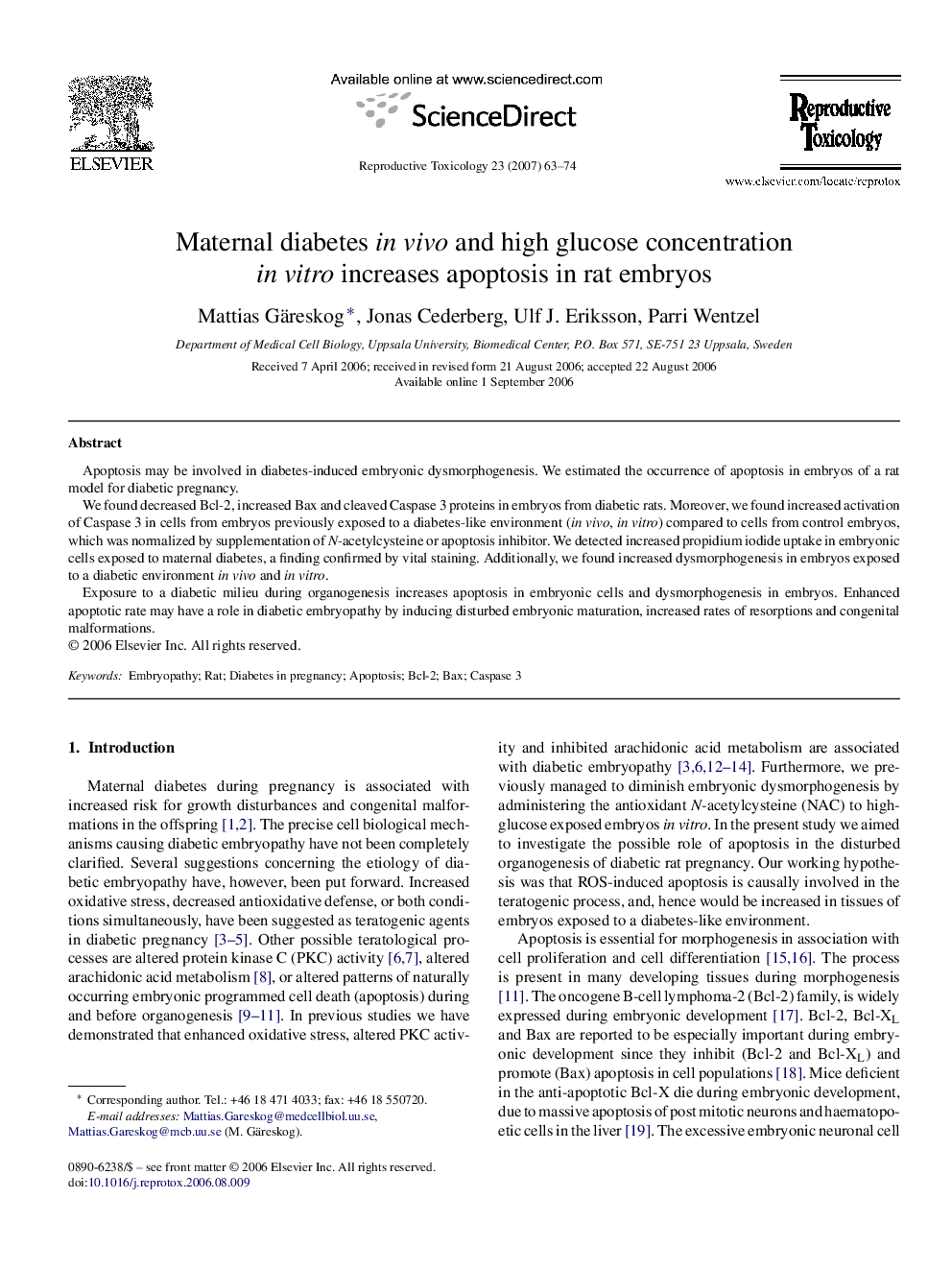| Article ID | Journal | Published Year | Pages | File Type |
|---|---|---|---|---|
| 2594749 | Reproductive Toxicology | 2007 | 12 Pages |
Apoptosis may be involved in diabetes-induced embryonic dysmorphogenesis. We estimated the occurrence of apoptosis in embryos of a rat model for diabetic pregnancy.We found decreased Bcl-2, increased Bax and cleaved Caspase 3 proteins in embryos from diabetic rats. Moreover, we found increased activation of Caspase 3 in cells from embryos previously exposed to a diabetes-like environment (in vivo, in vitro) compared to cells from control embryos, which was normalized by supplementation of N-acetylcysteine or apoptosis inhibitor. We detected increased propidium iodide uptake in embryonic cells exposed to maternal diabetes, a finding confirmed by vital staining. Additionally, we found increased dysmorphogenesis in embryos exposed to a diabetic environment in vivo and in vitro.Exposure to a diabetic milieu during organogenesis increases apoptosis in embryonic cells and dysmorphogenesis in embryos. Enhanced apoptotic rate may have a role in diabetic embryopathy by inducing disturbed embryonic maturation, increased rates of resorptions and congenital malformations.
